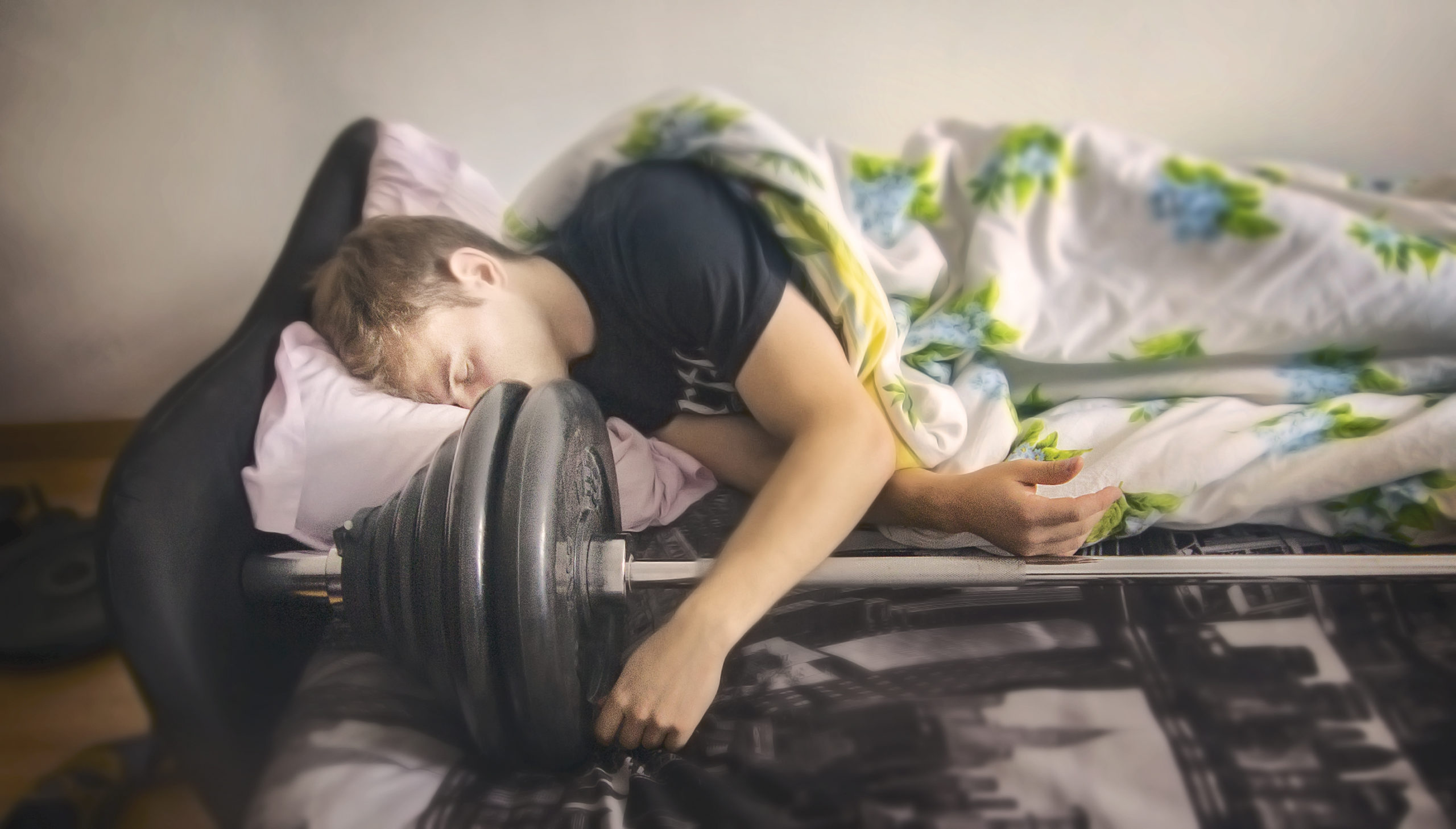Is Sleep Good For Muscle Recovery?
Having a good sleep for an optimal amount of time is very important for muscle recovery. During sleep, the body undergoes various processes that promote healing, growth, and recovery of tissues, including muscles.
Hormone Release: The body releases growth hormones during deep sleep, which is critical for both muscle growth and repair.
Protein Synthesis: Sleep helps in protein synthesis which is the process through which the body repairs and builds proteins, including those in muscles.
Tissue Repair: Sleep allows the body to distribute resources for repairing and regenerating various tissues, including muscles damaged during exercise.
Reduced Stress: Having a good sleep helps to regulate cortisol levels, the stress hormone. When it is elevated for a long period and an individual is stressed, it can also interfere with muscle tissue repair and growth.
Energy Restoration: You body needs deep and undisturbed sleep to rest from the day’s activities and recover energy for the next day. Sleep restores your energy levels and provides the body with the resources it needs for your daily activities and workouts.

Does Interrupted Sleep Affect Muscle Growth?
What Is Interrupted Sleep?
Interrupted sleep or fragmented sleep refers to sleep that is repeatedly disrupted during the night. This pattern of sleep prevents an individual from experiencing a continuous and restful sleep cycle.
Interrupted Sleep’s Effects On Muscle Growth
Interrupted sleep can have notable side effects on the processes that support muscle growth and recovery.
When sleep is interrupted, there is a potential impact on the release of growth hormone. Growth hormone is usually released during deep sleep phases, and disruptions can lead to a reduction in its secretion.
Not getting enough can also hamper protein synthesis, a fundamental mechanism responsible for the construction and repair of proteins, including those integral to muscle tissue.
This interference in protein synthesis compromises the body’s ability to properly recover from the wear and tear experienced during physical activity.
An irregular sleep pattern is very likely to contribute to elevated cortisol levels. This means that instead of promoting muscle growth, elevated cortisol levels can lead to your muscle tissues breaking down, hindering the overall process of muscle recovery.
Fragmented sleep can result in a decrease in your energy levels, impacting an individual’s performance during workouts and other physical activities.
Decreased energy levels can harm your ability to perform daily activities and the lack of adequate rest can greatly diminish the capacity for engaging in effective resistance training. Which will very well end in adversely affecting the potential for muscle growth.
How Much Sleep Do Bodybuilders Get Per Night?
The amount of sleep needed can vary among individuals, including bodybuilders. The amount of sleep you need for proper bodily functions is influenced by factors such as age, genetics, training intensity, health, and overall health.
But many experts recommend 7-9 hours of sleep per night for adults, including Bodybuilders.
During deep sleep, the body releases growth hormones and undergoes important bodily processes like protein synthesis. An inadequate amount of sleep can hinder these processes, adversely affecting a bodybuilder’s training progress and overall well-being.
Everyone’s personal preferences and requirements will probably vary when it comes to sleep.
Some people might find that they perform more optimally with slightly more or less sleep than the recommended hours while some people may find it difficult to maintain a heathy sleep cycle and go about their day.
But bodybuilders, like anyone else, also need to pay attention to their bodies’ health and adjust their sleep patterns accordingly.
To optimize muscle recovery and overall well-being, bodybuilders should aim to establish good sleeping practices that will not only encourage good sleep but also ensure a better overall health in their fitness journey. This includes:
- Consistent Routine: Waking up and going to sleep at the same time every day helps regulate the body’s internal clock and promotes better quality of sleep.
- Comfortable Sleep Environment: Making sure that your sleep environment is conducive to rest can also help you get better rest. Dark, quiet, and cool, that’s what you should be aiming for.
- Limit Stimulants: Caffeine or any other kind of stimulants should not be consumed close to bedtime. This is important to avoid because not only is it unhealthy for you but it can interfere with the ability to fall asleep.
- Manage Stress: Practice relaxation techniques and manage stress levels, as psychological factors can impact sleep. Managing your mental health can also play a pivotal role in getting good sleep.
- Limit Screen Time: Reduce exposure to electronic devices with screens before bedtime, they emit blue light and can disrupt the natural sleep-wake cycle.
Why Do Bodybuilders Have Trouble Sleeping?
Bodybuilders, like many athletes, can sometimes experience difficulty sleeping for various reasons. Some common factors that may contribute to sleep issues among bodybuilders include:
- Intense Training and Physical Stress: Bodybuilders engage in rigorous and demanding high-intensity training sessions. The physical stress placed on the body can make it challenging to unwind and relax comfortably before bedtime.
- Stimulant Use: Some bodybuilders use stimulants like pre-workout supplements or caffeinated beverages to enhance their training performance. Not just bodybuilders, but people should try to avoid consuming these substances later in the day as can interfere with your ability to fall asleep.
- Late-Night Workouts: Evening or late-night training sessions are likely to elevate your adrenaline and cortisol levels, making it harder for the body to transition into a state of relaxation conducive to sleep.
- Nutrient Timing: Bodybuilders often pay close attention to nutrient timing, including consuming protein and carbohydrates around their workouts. Though it might not be a common practice, having a heavy meal close to bedtime hours can lead to discomfort and indigestion.
- Overtraining: Excessive training without sufficient recovery time can cause “Overtraining”. Not only can this cause terrible muscle aches strenuous to the body but this can also impact the hormonal balance in the body, including elevated cortisol levels.
- Stress: The pressure to achieve specific physique goals, competition stress, life or work stress, or concerns about training progress can contribute to psychological stress, making it difficult for bodybuilders to relax mentally before bedtime.
- Body Temperature: During and after a rigorous exercise or training, your body heat increases, and adrenaline is pumping. It’s not recommended that you exercise in the evening or late at night because a higher body temperature can make it difficult to fall asleep faster.





